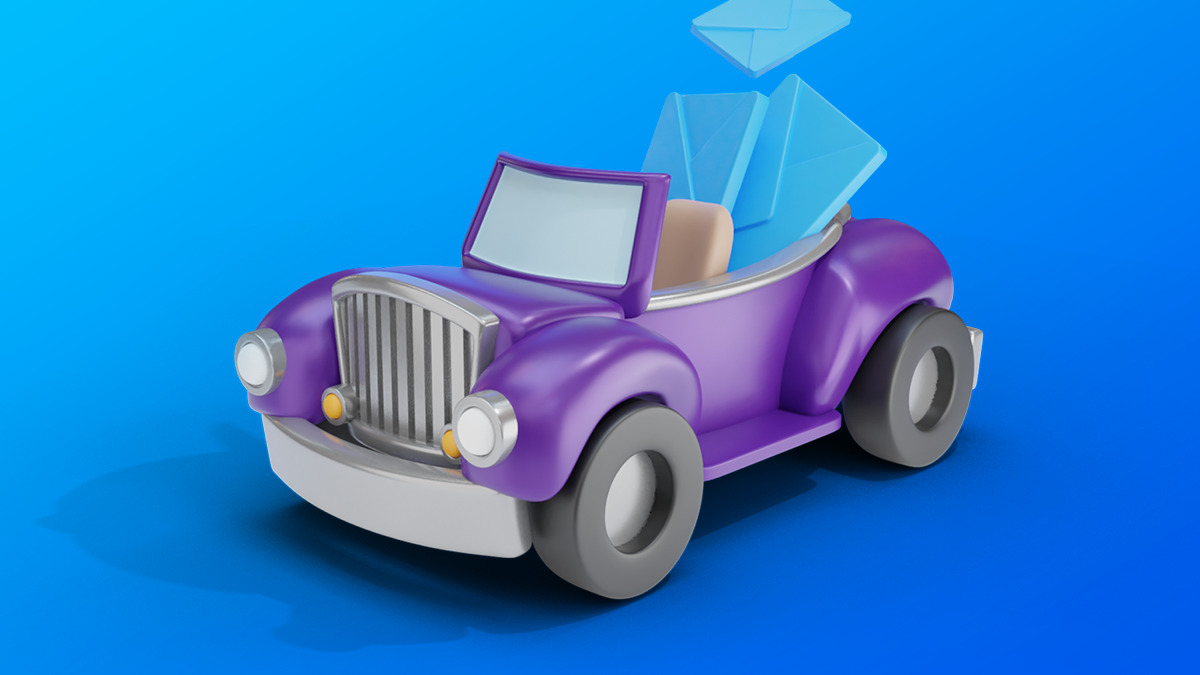
Sending emails can feel intimidating at first. It may even cause some “email anxiety” (yeah that’s a thing). But sending emails doesn’t have to be complicated or scary if you follow some basic email marketing best practices.
As you go through this list of best practices for email marketing, you won’t see guidelines about how many emails you should send, or how long your email needs to be, or the optimal length of a subject line.
The truth is, that while these are all great and important questions, the answer to these questions is different for every company. You can only answer these with email testing (which by the way IS a best practice).
No matter what your business is or what industry you’re in, some tried-and-true best email marketing best practices can only help guide you to success.
Email Marketing Best Practices
- Create automated email campaigns
- Segment your email list
- Personalize your emails
- Create engaging email content
- Have call to action
- Use confirmed opt-in
- Do not purchase an email list
- Clean your email list
- Do not use a no-reply email address
- Test emails before sending
- Analyze your email marketing stats
- A/B split test your email campaigns
1 - Create automated email campaigns
Email automation allows you to send the right message to the right people at the right time without having to set up and send one-off emails every time.
A perfect example of an automated email marketing campaign is your welcome email. Studies have shown a welcome email can generate 320% more revenue per email, 4 times higher open rates than other emails, and 5 times higher click-through rates than promotional emails.
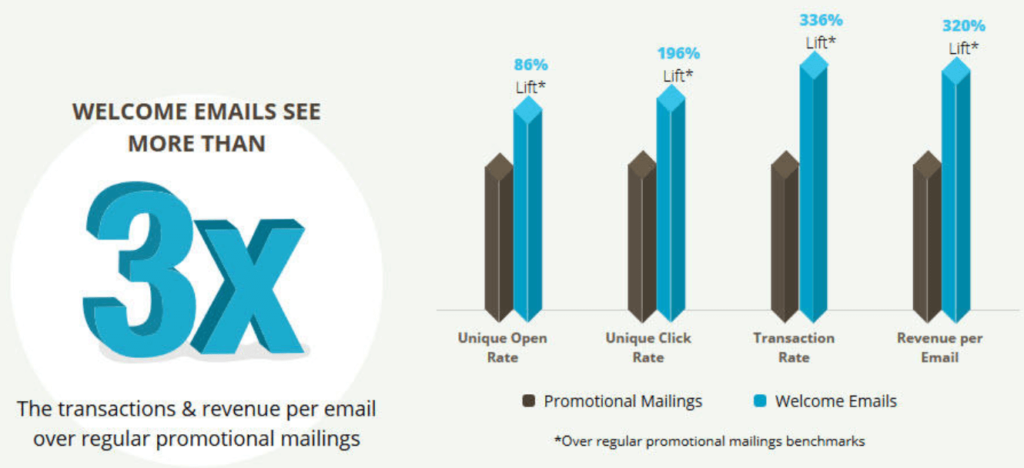
In addition to the welcome series, you can set up email automation campaigns for:
- Cart abandonments
- Thank you for your purchase or download or sign up
- Confirmation of an opt-in
- An event based trigger like an anniversary or birthday
- If a customer hasn’t opened an email in several months, you can trigger a “We miss you” message
While automated email campaigns can save you time and lead to higher results, it’s important not to set it and forget it. You should still monitor the performance of your automated email series and find ways to test so you can improve your email performance.
2 - Segment your email list
Email segmentation is a way to break up your list into smaller, more targeted groups, based on a specific set of criteria.
When you segment, you can send more personalized and relevant content or offers to customers based on similar interests, geographic location, purchase history, and so much more.
Plus, it leads to a higher open rate, click rate, and conversation rate. And more importantly, higher revenue. Some marketers reported as much as 760% increase in revenue.
RELATED: Ways Email Segmentation Can Boost Subscriber Engagement
3 - Personalize your emails
Which of the two following examples do you think would trigger more foot traffic?
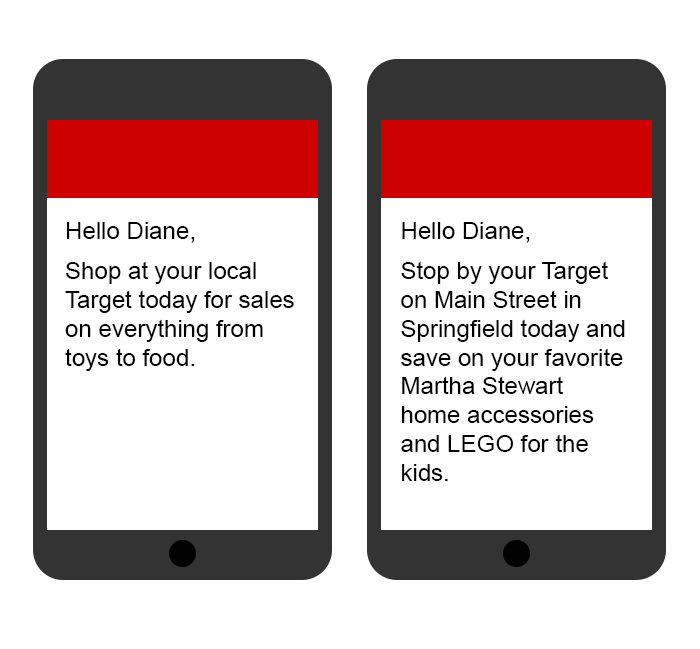
In this example, if I know Diane’s location preference is in Springfield and she’s previously purchased Martha Stewart products and LEGO’s, then this personalized email will resonate much more than the more generic example.
Email personalization allows you to create more targeted emails that stand out in the inbox. You should be personalizing everything in your emails from the subject line to the actual email content to the offer itself.
4 - Create engaging email content
The purpose of your emails is to get people to read them so they can take the desired action. So obviously you want to create an email that is compelling and engaging. For some people that’s easier said than done. If you’re like me, then writing doesn’t come naturally, but don’t worry. AWeber has resources to help you write amazing emails.
5 - Have a call to action
Most emails need to have a call to action. Think of the result or action you want your subscriber to achieve, now call it out. Sure you will occasionally send an email that doesn’t require a call to action (or CTA), like a thank you email, and that’s fine.
For those other emails you need to have some form of a call to action. This could be a CTA button or hyperlink which directs subscribers to your website to read a blog, sign up for an event, or make a purchase. Other types of call to actions could have the results of driving traffic into a physical location.
Plus, you can get creative with your CTAs. Don’t feel like you can only use “click here,” “read more,” or “shop now.” Check out how shoe store DSW phrased its call to action in an email promoting a “buy one get one” offer:
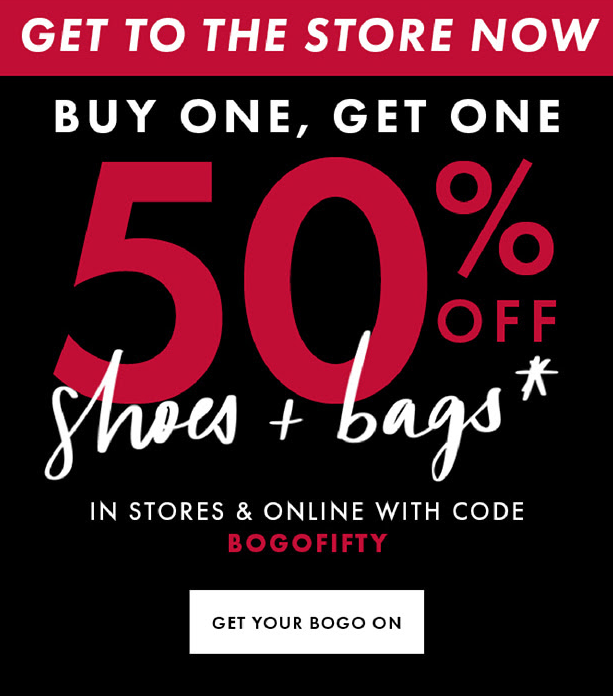
6 - Use confirmed opt-in
Setting up a signup form on your landing page or Facebook page is a great way to grow your email list. But once they sign up, send an email to confirm their email address.
Getting a subscriber to verify again that they want to receive your email is a great way to improve your delivery rate. And since they confirmed their email address, you know they really wanted to sign up. This should make them more responsive and lead to higher email engagement.
7 - Do not purchase an email list
If we had a megaphone for this point, we would use it. Never purchase an email list. Sending emails which people didn’t provide their permission for is considered spam — not to mention illegal.
When you use a purchased email list, you’re setting yourself up for disaster. Since these people didn’t opt-in to hear from you, they begin to mark your messages as spam. This will lead to lower delivery rates and your emails will start to go straight to spam folders where they will never get seen or open.
AWeber, among other reputable email marketing service companies, will not allow you to import a purchased list.
8 - Clean your email list
Cleaning your email list should be viewed as addition by subtraction. By removing contacts from your list who have not opened your email over a specific period of time, you will receive better open rates. How? Because you’re only sending to those subscribers who are really interested in your product or service.
You also reduce the risk that an inactive subscriber will mark your email as spam, which could negatively impact your delivery rate.
It is recommended that your email list should be cleaned at least once every six months.
9 - Do not use a no-reply email address
Have you ever received an email from a noreply email address? It looks something like this - noreply@domain.com.
You should never be sending an email with a noreply address. And the reasons are obvious:
- A noreply email address decreases deliverability
- It increases your chances of being labeled as spam
- By not allowing your customers to reply to your email you are creating a poor customer experience
Instead of having a reply email address as noreply@domain.com, have it come from an actual person or customerservice@domain.com. Either way, to ensure your customers questions are answered in a timely manner, make sure you have someone actively managing this email address.
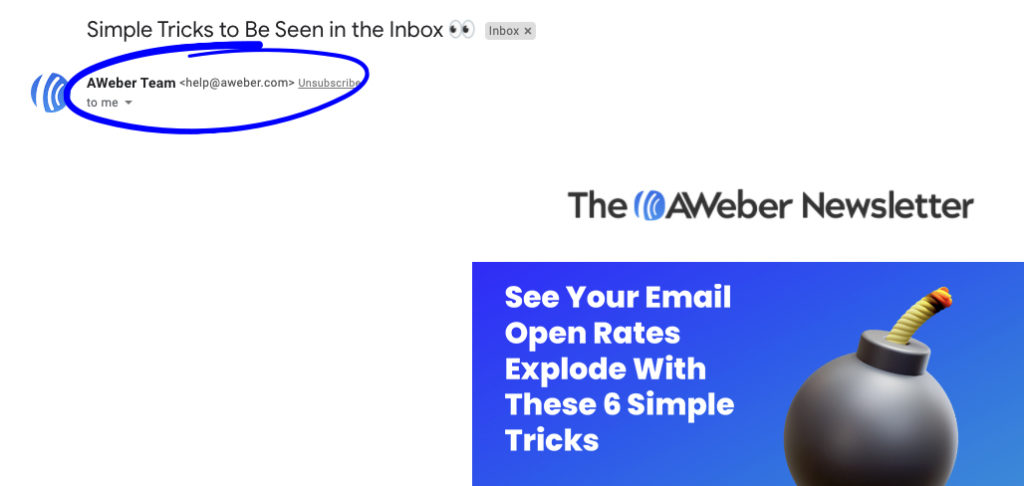
10 - Test emails before sending
Proof-reading your email is a critical step before pressing “send.”
Part of this process should be sending yourself a test email before scheduling your email. I recommend setting up a pre-flight checklist, where you can check all elements of your email to make sure it’s in good shape to send.
Send yourself a test email and check for these important email marketing elements:
- Email is rendering properly
- Images are loading
- You have alt text for your images (for images that don’t render this will tell the reader what the image is about)
- There are no spelling mistakes
- Your hyperlinks and call to action buttons take you to a live page
- It looks good on both laptop and mobile
11 - Analyze your email marketing stats
But how do you know your emails are working? By looking at the data. One of the most important email marketing campaign best practices is to understand how your emails are performing.
The most important email marketing performance data you should look at are:
Open Rate
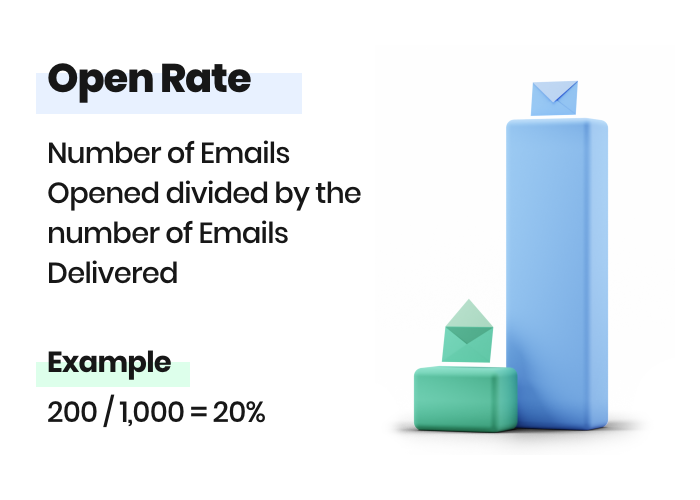
Click Rate
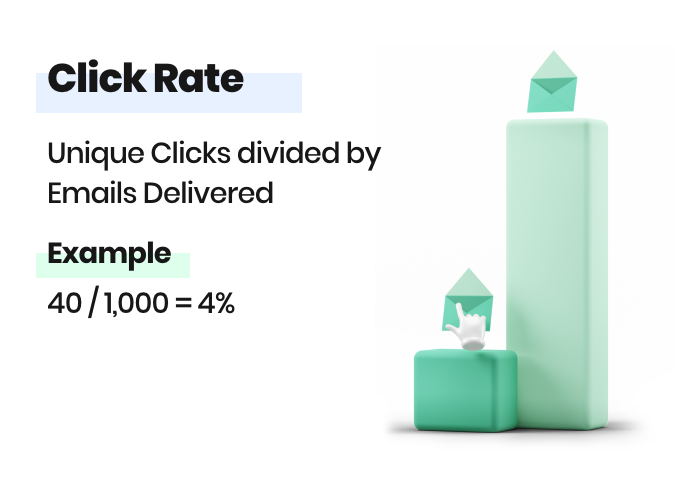
Delivery Rate
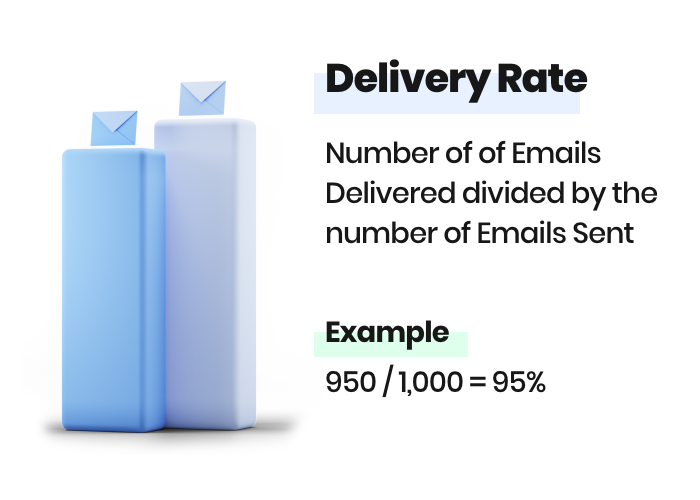
Opt Out Rate
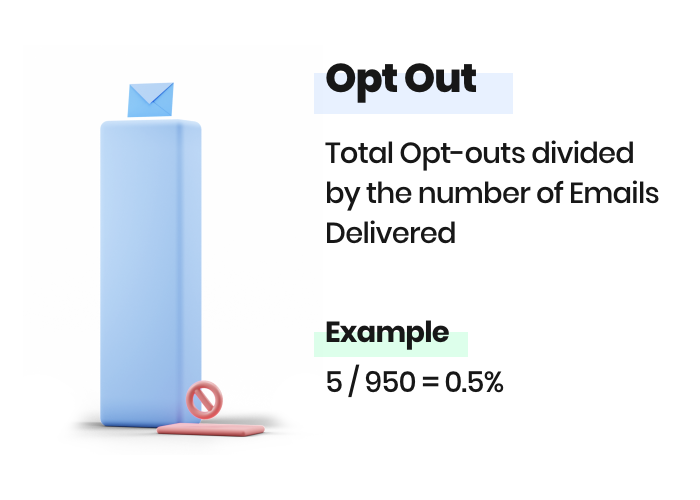
12 - A/B split test your email campaigns
Anyone can create a marketing email that gets opened and clicked. But if you want to create a truly remarkable email experience for your customers, you need to split test.
I hear all too often, what should I test? Well, with an email service provider like AWeber, you can and should test everything.
Here are a few email test ideas to get those creative juices flowing:
- Different subject line messages
- Image vs no image in the email
- Different color call to action button
- Time of day
- Short subject line vs long subject line
- Short email message vs long email message
- Who the email is from - a person’s name, customer service, the name of your company
Testing will ultimately help you understand your customer better, which will lead to a better experience.
Remember, once your test is done, analyze your stats.
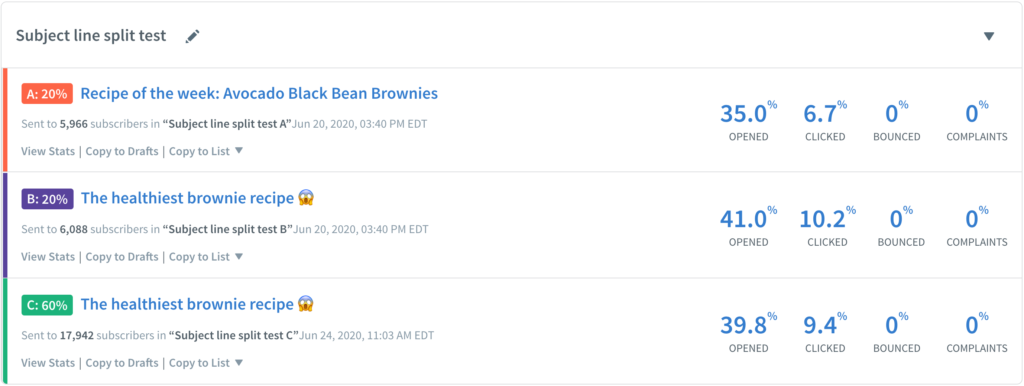
Email marketing is not rocket science. And once you start following these email marketing best practices, I’m sure you’ll see even more success growing your business — and have some fun in the process as well.
Take Your Email Skills to the Next Level
Now that you know the most important email marketing best practices it's time to get all the tools and resources you need to become an email marketing pro in no time.
I get it, running a business is like working two full-time jobs. Sometimes it may be a challenge to dedicate the time and energy into marketing your business. We’ve made it a little easier for you with this guide: “How to grow your business with email marketing”.
The post Email Marketing Best Practices for 2022 The Drive Results appeared first on AWeber.
from AWeber https://ift.tt/2U7HZlJ
via IFTTT
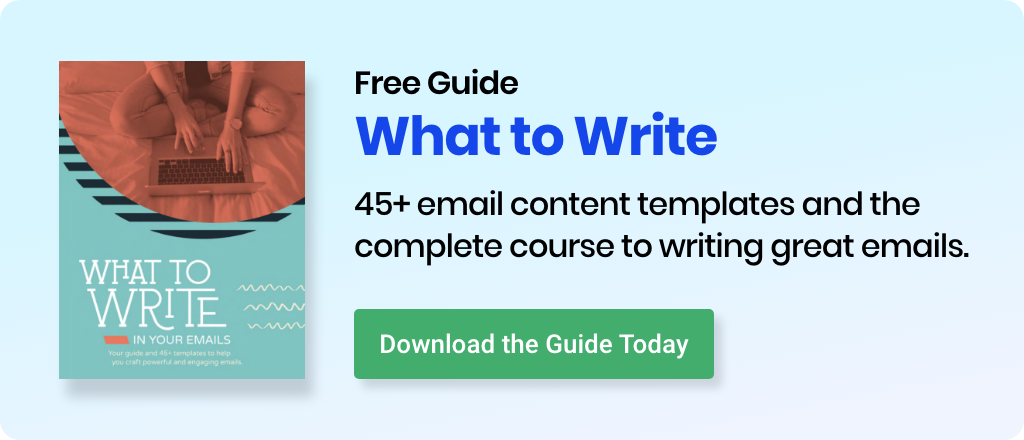
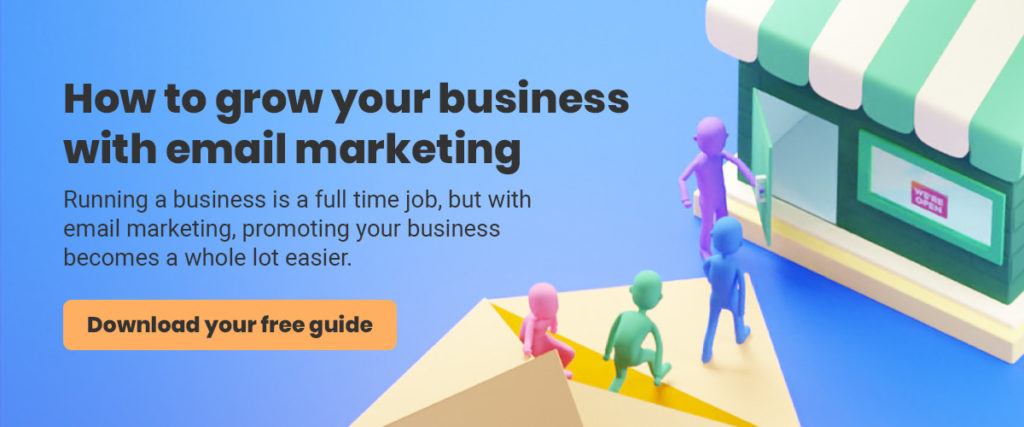
No comments:
Post a Comment